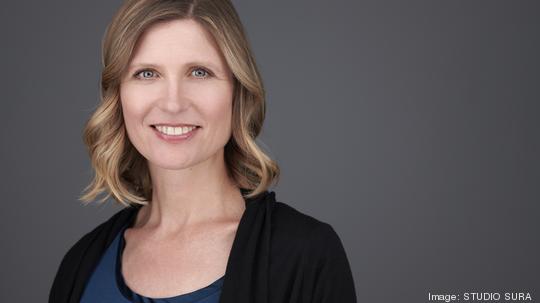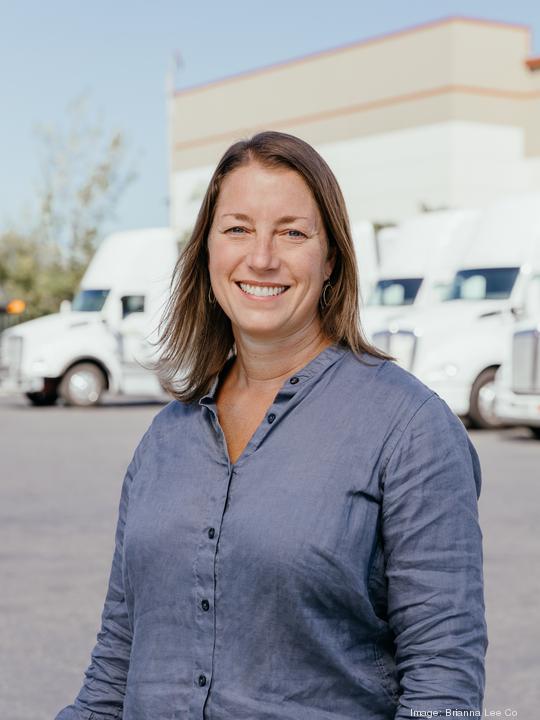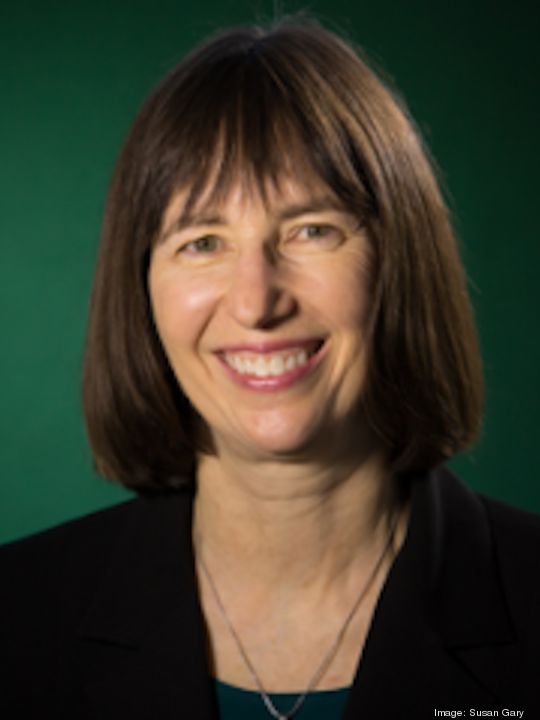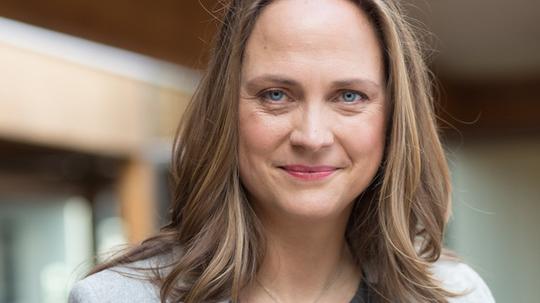Organically Grown Company has long been known as an organic source of lettuce, cauliflower, kiwis, pomegranate, green beans and other produce that it ships to grocers and wholesale distributors nationwide.
Founded in Eugene in 1978 by a group of small-plot farmers and hippie environmentalists, it was evangelizing the benefits of eating “organic” before many Americans even knew what the word meant. Today OGC employs 250 workers and is one of the country’s largest distributors of organic produce.
More recently, though, OGC has gained recognition for leading another movement with its adoption of a novel ownership structure that keeps the company laser focused on its dual mission of nourishing people while protecting the planet. OGC believes it is the first American company to be owned by a perpetual purpose trust.
Used by some European companies, perpetual trusts are typically employed in the U.S. by families to protect wealth for future generations. Adapting the model for a business took a considerable investment from OGC – and a leap of faith for its employee-owners. OGC had to raise outside capital for the first time in its history and champion a change in Oregon law to incorporate in its home state.
Under terms of OGC’s Sustainable Food and Agriculture System Perpetual Purpose Trust, the company can never be sold and will, in perpetuity, be managed by “stewards” who are engaged in the organization. It is governed by 5 stakeholder groups: employees, producers, customers, community and investors. Profits are shared and reinvested to support the mission.
“Just because we had founders retiring and wanting liquidity out of the business, we decided to put a stake in the ground very clearly that would protect our mission and allow the business to continue on as an independent organization with the steering wheel being held by those actively involved in the business,” said Natalie Reitman-White, formerly a vice president with Organically Grown and instrumental in the transition.

To put it bluntly, the company can never be bought by a private equity firm or a larger conglomerate that might put profit ahead of purpose. Instead, its five stakeholder groups reap the benefit of company growth and investment.
That philosophy was on full display in 2020. Amid a pandemic and catastrophic wildfires, OGC launched its Mission Fund, the community component of its stakeholder group, and committed its first $100,000 to organizations helping farmers and farmworkers with impacts from both the fires and the Covid-19 pandemic.
OGC’s trailblazing effort on the perpetual ownership trust is getting noticed by other U.S. companies and entrepreneurs. After receiving a flood of inquiries about its transition to the trust, OGC launched a consulting firm, Alternative Ownership Advisors, to help other companies explore alternative business structures.
“(We are) shifting the paradigm of how a business looks at profit,” said OGC CEO Elizabeth Darrow-Nardi, “by having profit serve our mission and our company rather than the company serving quarterly profit.”
‘AN ACTIVIST ORGANIZATION’
OGC is an Oregon C Corp benefit company, a standard organizational structure for companies that want to incorporate social and environmental impacts into decision making while remaining a for-profit entity. That C Corp benefit company is owned by the perpetual trust.
A Sustainable Food and Agriculture System Perpetual Trust embeds those principals more deeply. The trust holds all the common stock of OGC, meaning there is no question about ownership succession. The trust will never die. It also doesn’t have to worry about a liquidity event, because the business isn’t owned by a person with expenses or a need to extract profit.
“We always say that we’re a vehicle for change and produce is our avenue,” Darrow-Nardi said. “But we are very much an activist organization with a co-ownership culture.”

With multiple stakeholders participating in that ownership, she said OGC wanted off the treadmill of succession planning.
The trust governance has two committees: The Trust Protector Committee and the Trust Enforcer Committee. All stakeholders can become certified to elect Trust Protector members, who in turn elect the board of directors.
“The trust protectors and trust enforcers are basically the stand-in for a shareholder,” said Reitman-White, who left her executive role at OGC for a leadership role at the consulting arm, Alternative Ownership Advisors. “They occupy the role that a shareholder would play representing the trust and ensuring that the board delivers results to the purpose and keeps the company viable.”
The company essentially did a leveraged buyout with half debt and half equity to achieve the transition to the trust. The company borrowed $10 million from San Francisco-based RSF Social Finance, a community development finance institution that invests in social enterprises. And it raised $10 million from a group of mission-driven investors. The capital was used to buy out OGC stockholders, such as founders and employees.
The investors, who include regional foundations and progressive investment funds, receive a share of the economic flows like the rest of the stakeholder group. They hold non-voting preferred stock, which is an idea OGC borrowed from the co-op world.
The model might appeal to venture capital- or private equity-backed companies interested in the trust organizational structure if the investors see value in a social return.
Environment, Social and Corporate Governance investing is a fast-growing segment of the wealth management market. One in four dollars under professional management in the United States is now invested in strategies that emphasize good environmental, social or governance metrics, a 38 percent increase in just two years, according to the US SIF Foundation.
The world’s largest money manager BlackRock, which has $7 trillion in assets under management, has been heading this direction as well. In 2018, the firm told portfolio companies they must also have a social purpose for business to remain competitive. This year, the firm said it would focus on environmental sustainability.
“There are actually private equity firms that are looking toward different ways of sharing employee ownership because it actually can make their returns de-risked,” said Reitman-White, noting that such structures have everyone “rowing in the same direction.”
And that in turn dissipates tension between investors, operators and employees.
Local wealth managers are seeing the same interest in ESG investing. Ferguson Wellman Capital Management, one of the state's largest investing firms, said earlier this year it fielded ESG inquiries from investors from across the state during a roadshow with clients.
"This was the most asked question," said Mary Faulkner, a senior vice president in a February interview. "We're talking Medford, Bend, Salem, Portland, Vancouver. Even in our most conservative markets, it was brought up."
ESG is one of Ferguson Wellman's fastest growing practices.
One-hundred percent of OGC stakeholders, including the 50 farmer and founding employees and the few hundred past and present employees in the stock ownership plan, supported the transition to the trust. The unanimous approval is notable given that OGC had to raise outside capital for the first time in its 40-year history in order to make it happen.
“(Company stakeholders) had seen what happened when other distributors sold to bigger conglomerates and how that changed their behavior as the decision making got further and further away from the local people,” said Reitman-White.
'INNOVATION AMONG LAWYERS'
In its history, OGC has been organized as a nonprofit, a co-op, an S-Corp and, prior to the perpetual trust, an Employee Stock Ownership Plan. While the ESOP had served it well through the years, company leadership worried it wasn’t enough to ensure that the company’s mission to transform food and agriculture systems would survive forever. As an ESOP, the company still had a fiduciary duty to entertain any buy-out offers it received and accept any that maximized liquidity.
OGC landed on the trust structure after working with Ron McFall, an attorney at Stoel Rives LLP in Minneapolis. McFall has a background in securities and M&A law but typically works with cooperatives and other multi-stakeholder groups.
“What we did with OGC is something I am quite proud of. It’s innovation and innovation among lawyers is not that common,” he said.
At the heart of it was finding a way to accommodate ownership among the five stakeholder groups that OGC wanted, while offering a fair market value and locking in the mission.
This was an acute issue with the investor stakeholders because unlike traditional equity investing they don’t get controlling votes and they had to understand profit would be shared with others.
“B Corp (status) is desirable to build the mission into operations but the majority of stockholders can change it if they want to,” McFall said. “We came to the conclusion that to lock in the mission we had to do something at the ownership level.”
McFall and colleagues at the Portland office started researching options. Eventually, the idea of a perpetual trust surfaced and some examples in Europe emerged. One was the 100-year-old John Lewis Partnership in England, an employee trust that owns John Lewis and Partners department stores.
OGC’s perpetual purpose trust adopted the part of U.S. law often used by wealthy individuals to set up trusts that will benefit their decendants. A perpetual trust is unique because none of the beneficiaries are people. Instead, the assets are held by the trust. And those assets must be used for the ongoing benefit of the purpose.
“Our purpose is to transform toward sustainable food and agriculture; to basically transform food systems toward sustainability,” said Reitman-White. “No individual can claim rights to the property in the trust, unlike a family trust.”
The trust was initially incorporated in Delaware, one of a handful of states that would allow such ownership. OGC and its Stoel Rives attorneys worked with University of Oregon professor Susan Gary to craft legislation that would allow the trust to incorporate in Oregon.

That legislation was passed in 2019 and allows for a stewardship trust and steward-ownership. Legislation was needed to change two elements of Oregon trust law, said Gary. One was ending the 90-year limit on trusts and the other removed a judge’s ability to reduce the amount held in trust.
“We decided it would be better to create a structure in the statute that would make it easier for other companies to use (it),” instead of merely making the changes, she said. “We wanted to put the basic structure in the statute as guidance and then any company that does this will (just) need its own trust agreement.”
'OWNERSHIP IS KEY'
OGC launched Alternative Ownership Advisers to handle all the inquires it is receiving from entrepreneurs and business owners interested in steward-ownership. On the finance side, the company was itself surprised by the interest from investors who wanted to be a part of the trust.
The team gave itself three years to try to raise the $10 million it needed for the buyout. It was able to open and close the oversubscribed round in 18 months, said Reitman-White.
“We’ve actually had people continue to reach out to us about opportunities for investment,” she added.
For his part, McFall has a growing practice at Stoel helping businesses pursue alternative ownership structures. And Gary has been introducing the idea of steward-ownership to as many law groups and wealth management groups as she can.
“The old Milton Friedman quote that the business of business is business has been so ingrained in the mentality of how businesses run that it’s just accepted,” she said. “A generation is coming of age and creating businesses and saying, yea, I want to have a good life for my family, but it’s not just about making as much money as I possibly can.”
There are 2,903 active benefit companies in Oregon, according to the Secretary of State’s office, a sign of the robust interest in a triple bottom line focus.
In 2017, a group of Portland entrepreneurs created their own manifesto online about building a startup ecosystem that is rooted in community instead of the winner takes all mentality coming out of Silicon Valley or Wall Street. They called these companies zebras — a real animal — in contrast to the Silicon Valley unicorn narrative that can lead to unsustainable practices. And they called on other founders to join them.
The subsequent group, called Zebras Unite, has a global community of 10,000, said co-organizer Astrid Scholz. Scholz is a Portland entrepreneur, economist and former president of the environmental nonprofit Ecotrust.
It was at a Zebras Unite event that OGC met two of its eventual investors.
“When you think about the next economy and one that is way more just and rectifies racial inequities, ownership is key,” said Scholz.

Zebras’ global community is exploring how to build companies in new sustainable ways. This includes a cohort of about 30 founders exploring alternative ownership similar to OGC’s trust.
“Steward-ownership and these new forms of worker ownership for example, that has such potential to be an enormous engine for community wealth creation,” Scholz said, adding that historically generational wealth is created not from salaried jobs but from ownership and dividend payments.
So far, the perpetual trust is working as OGC anticipated. The Mission Fund, which provided Covid and wildfire relief to farmers, farmworkers and retail employees, is the most tangible result so far.
The next step may be exploring how to make changes to allow for tax flexibility. ESOPs, for example, have tax benefits for owners and subsequent incentives.
“That is something we would love to pursue in the next evolution,” said OGC’s Darrow-Nardi.



